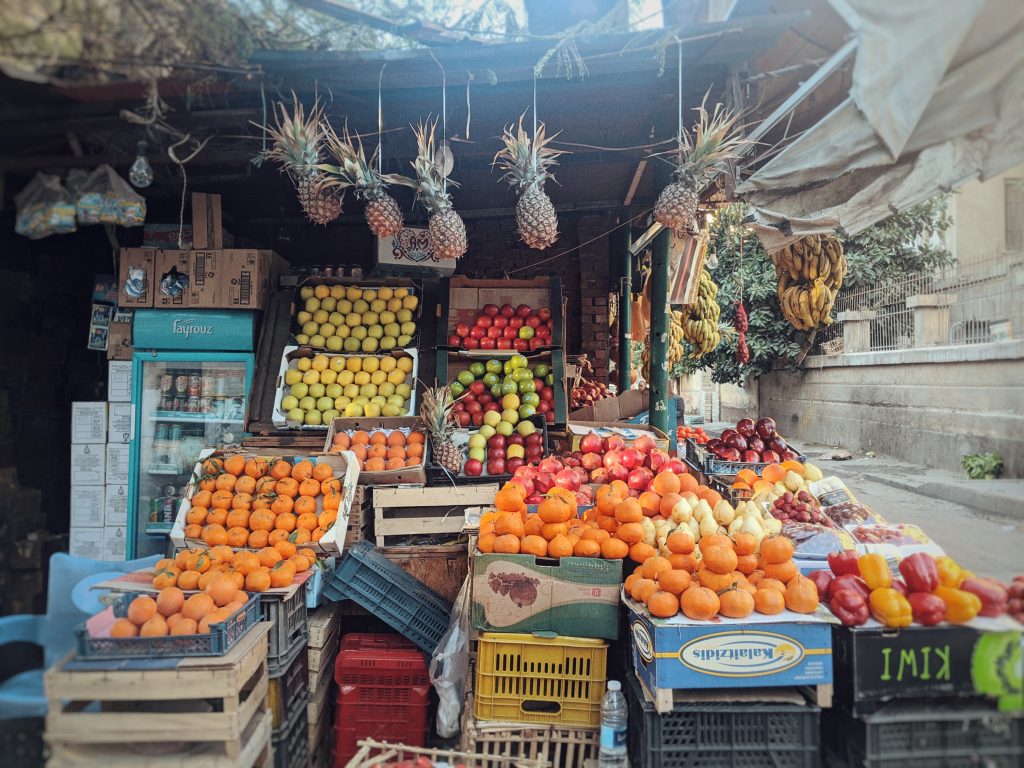Between towns, checkpoints and rest stops along endless grey asphalt highways piercing through the uniformly beige and flat desert, little sticks out from this repetitious landscape. But driving along, glimpses of colour flash by along the road, like wildflowers growing in freshly turned soil. Yet these blues, reds and greens are not cornflowers, poppies and daisies, but Pepsi, Coke and Seven Up.
These modern wildflowers of the desert can take 450 years to decompose and leave a modern archaeological legacy for future generations. This layer of history will be layered above Jordan’s Nabatean ruins, Iraq’s Assyrian heritage, and Egypt’s pharaonic roots as a marker of how we lived and how we treated this planet.
The United Nations estimate that 500,000,000,000 plastic bags are used every year and 1,000,000 plastic bottles are bought every minute. Of this plastic, around 12 million tons will end up in our oceans every year and because plastic slowly degrades and breaks down into microplastics, it now contaminates a total of 83% of tap water.
The need to recycle and reduce plastic has finally began to receive global attention and many countries and cities have committed to ending the use of single-use plastic, including the Middle East. Many futuristic and experimental solutions have also been proposed that involve advanced recycling techniques and the production of new, easily biodegradable materials; however, we can also take a step towards a sustainable, plastic-free future by looking back at traditional ways of selling and buying products in the Middle East.
As large supermarkets spring up across the Middle East, heading to the local market to pick up fruit and vegetables is increasingly just a memory for some. However, comparing an unnamed luxury Egyptian supermarket that often praises its own ecological efforts and the local vegetable and fruit market is illustrative of how ‘progress’ and the ‘modern’ need to be recalibrated in a world struggling to become sustainable.
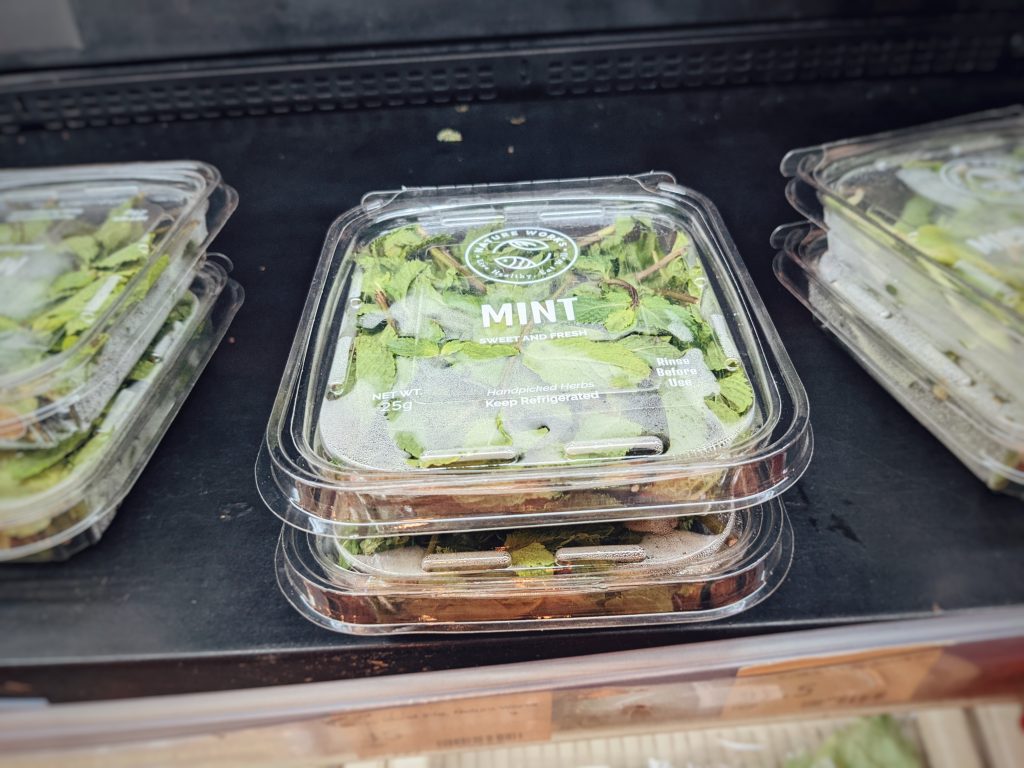
While the local market sells bunches of mint with their stalks bound together with a single palm leaf, the luxury supermarket sells the same product in its own plastic box ironically branded with phrases regarding its commitment to work with nature. Similarly, walking up to the vegetable section in the supermarket is like approaching a Piet Mondrian painting as the brightly coloured vegetables boxed up in see-through plastic containers create a mosaic across the refrigerated shelves. The local vegetable market on the other hand offers fresh produce out of boxes made out of leftover wood from palm trees for you to put straight into any bag you bring, without the need for plastic to ever encroach on the transaction.
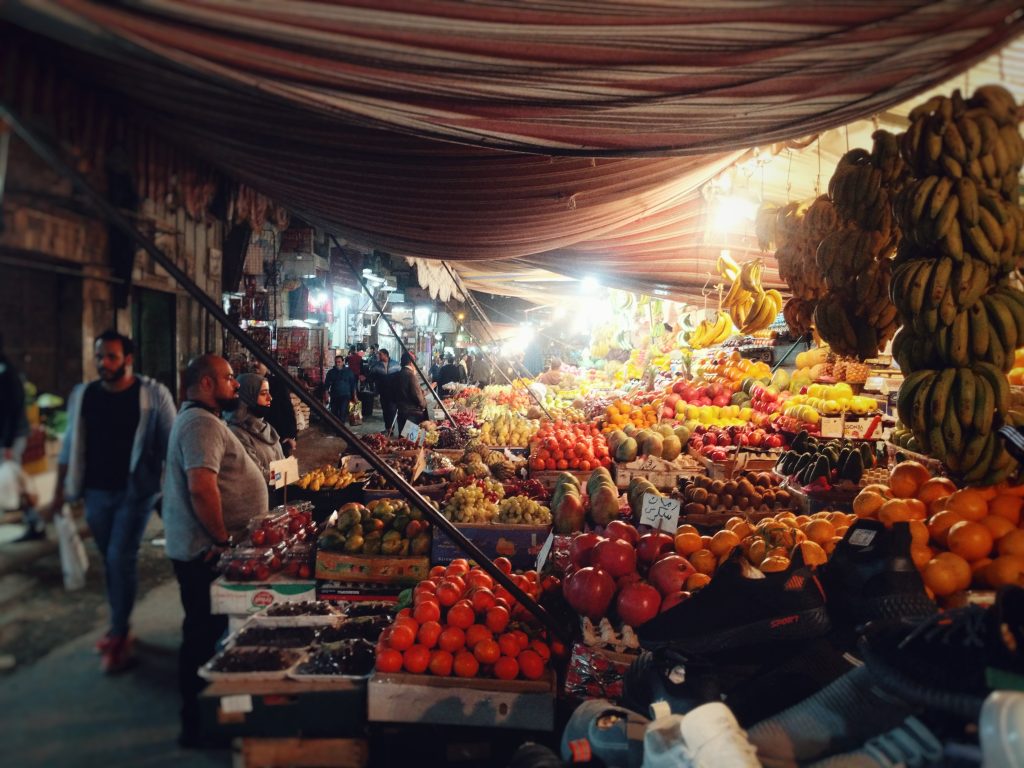
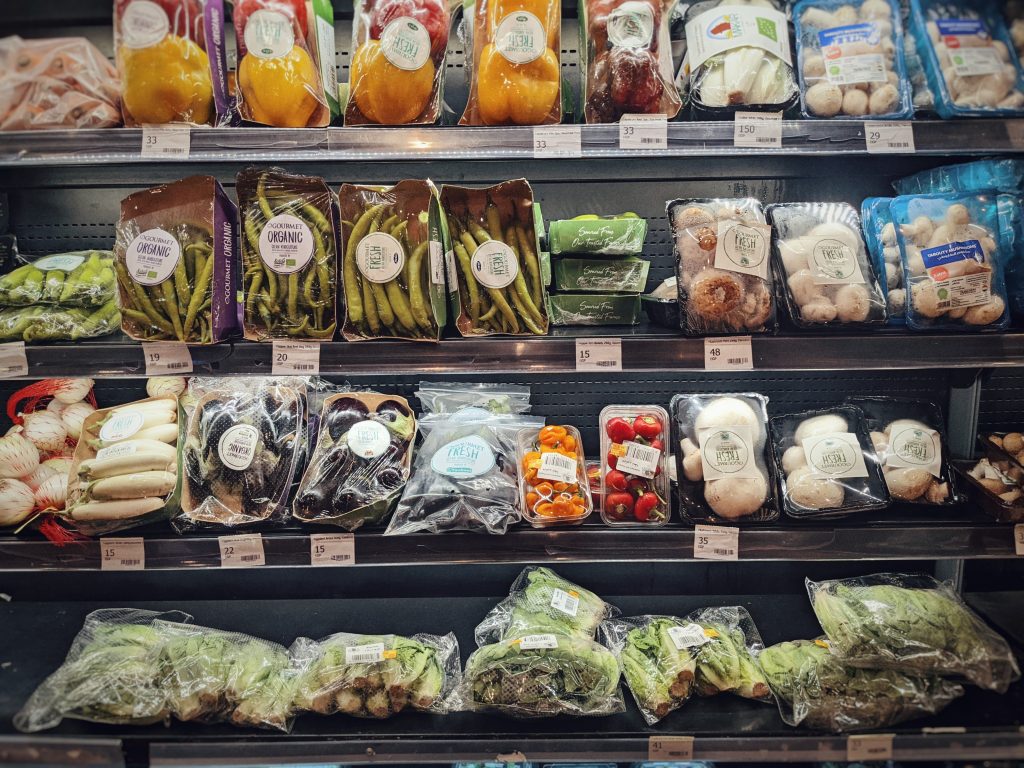
Another way we can learn from traditional methods of buying and selling produce in the Middle East is from the attar, a shop which sells spices, dried fruit, pasta, pulses and many other items straight from large sacks or draws, straight onto the scales. The absence of packaging means you can bring your own spice jars or pasta containers and fill them direct, doing away with the need for the plastic bag or box that is thrown away straight away as you unpack the shopping.
Surprisingly, in trendy neighbourhoods in American and European cities, shops have been popping up at an increasing rate that are not too different from the humble and undervalued Middle Eastern attar. Known as refill shops or zero-waste shops, these shops stock pasta, dried beans and pulses, spices, and other food items, but do not provide any containers or bags because the customer brings these from home to eliminate the use of plastic altogether. An Egyptian honey and spice producer Imtenan has even jumped on this concept and offers refills of your honey jars straight into the jar itself.
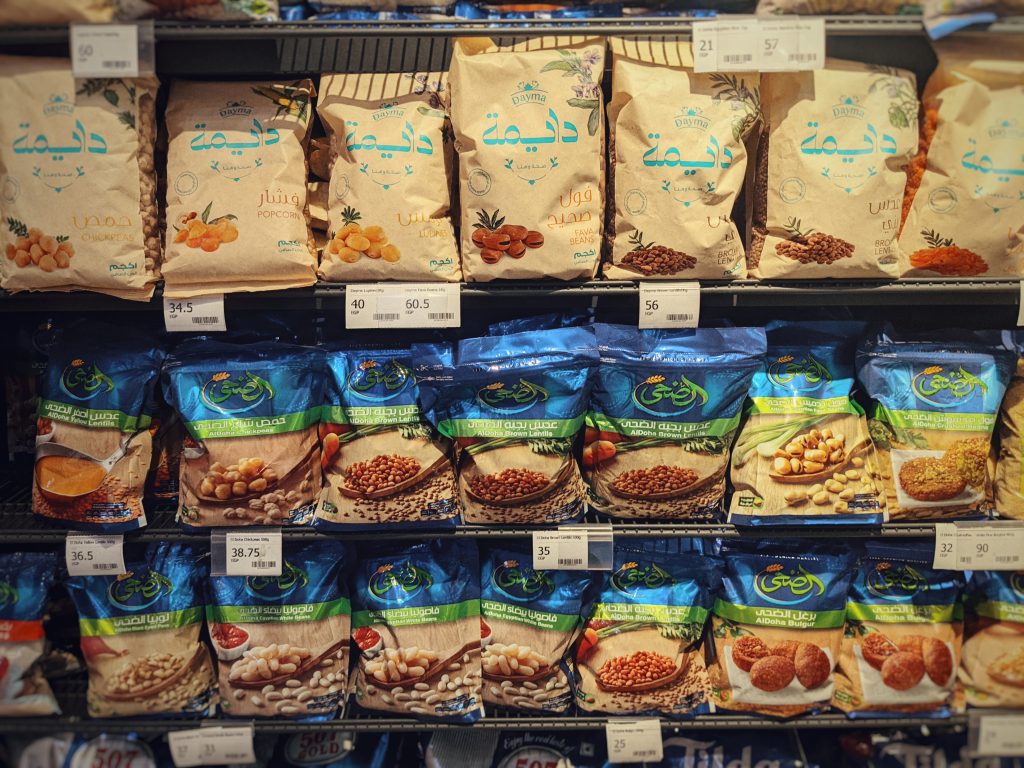
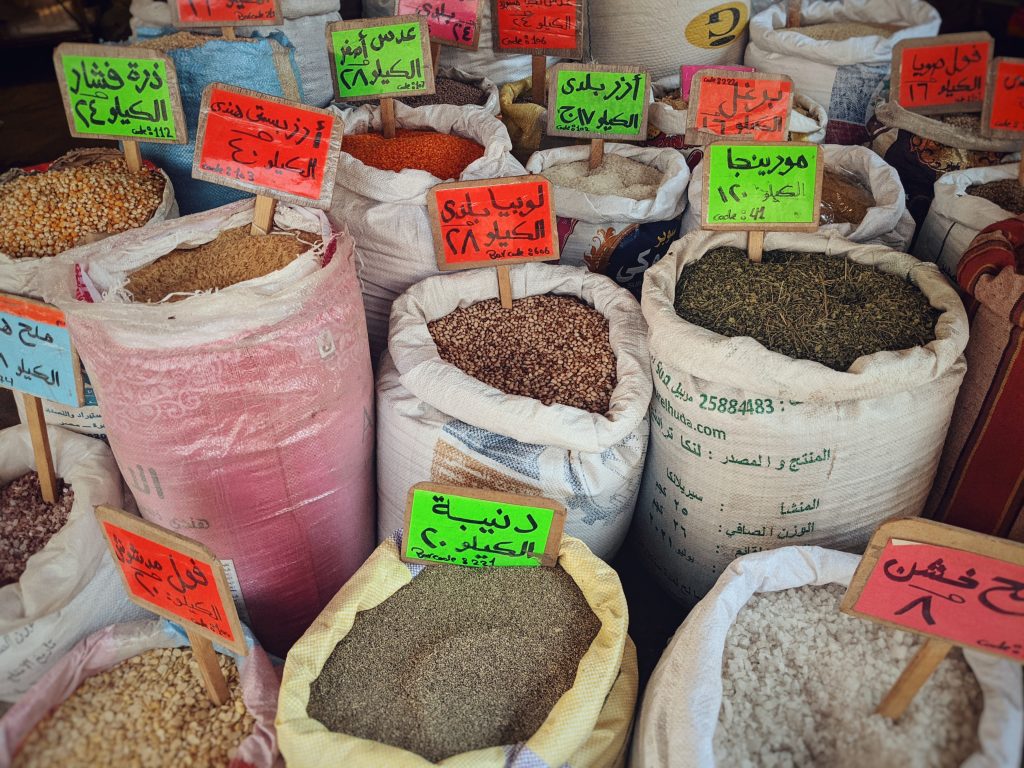
Coca Cola from a glass bottle without a doubt tastes better, but these returnable bottles are also a far more sustainable way of selling and consuming pop. Middle Eastern kiosks often have a bottle opener tied with a bit of string to the fridge and a crate for the empty bottles when you’re done. Egypt’s national beer, Stella, also offers returnable bottles as a way to save a bit of money and prevent unnecessary waste filling the world’s landfills. Returning your glass bottle may seem like a throwback to a time most of us were born, but this is what a future sustainable world may look like.
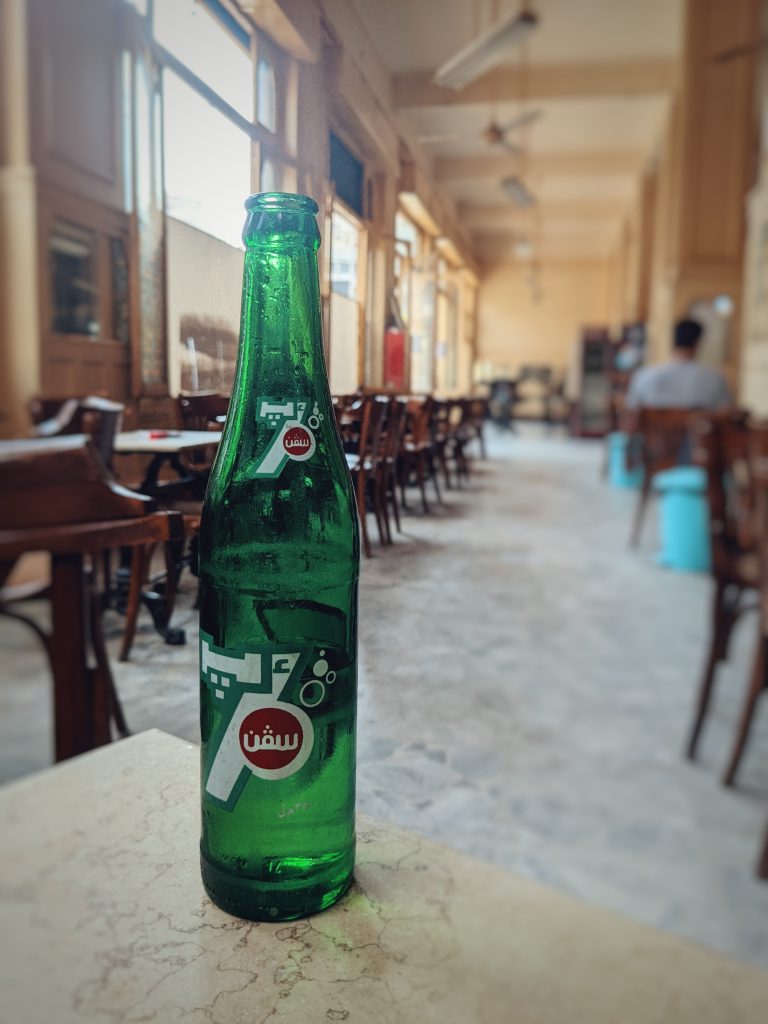
The traditional Middle Eastern butcher and the supermarket’s stacks of packaged meat provide a similar contrast. The polystyrene plate and plastic wrap smothering the meat will maybe pollute our soils for hundreds of years to come, while the local butcher’s meat wrapped in waxed paper and tied together with twine will be decompose in no time and enrich the soil instead of poisoning it.
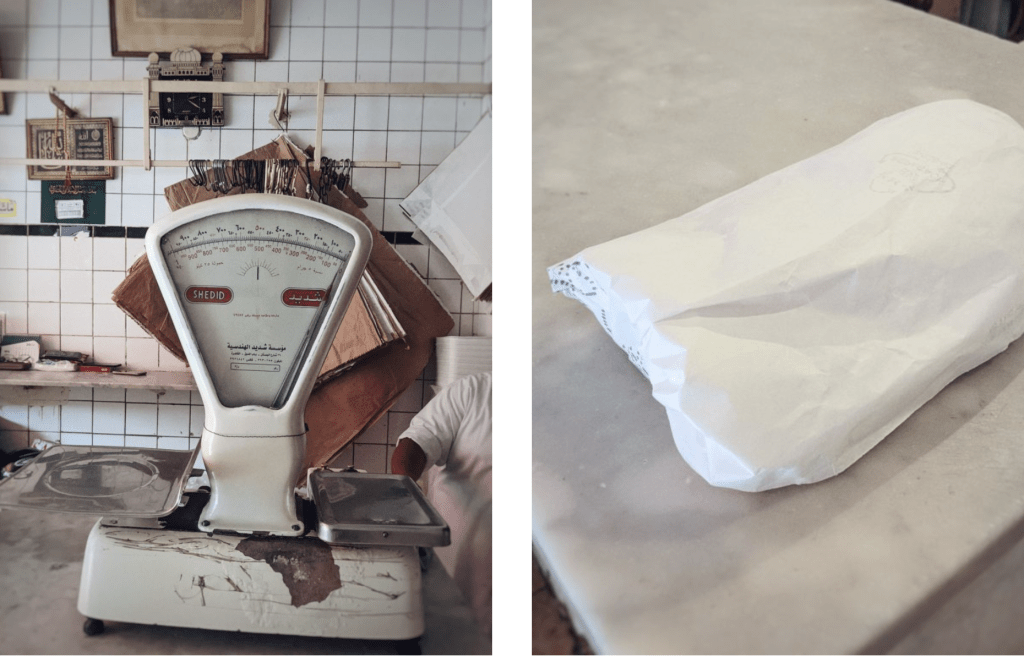
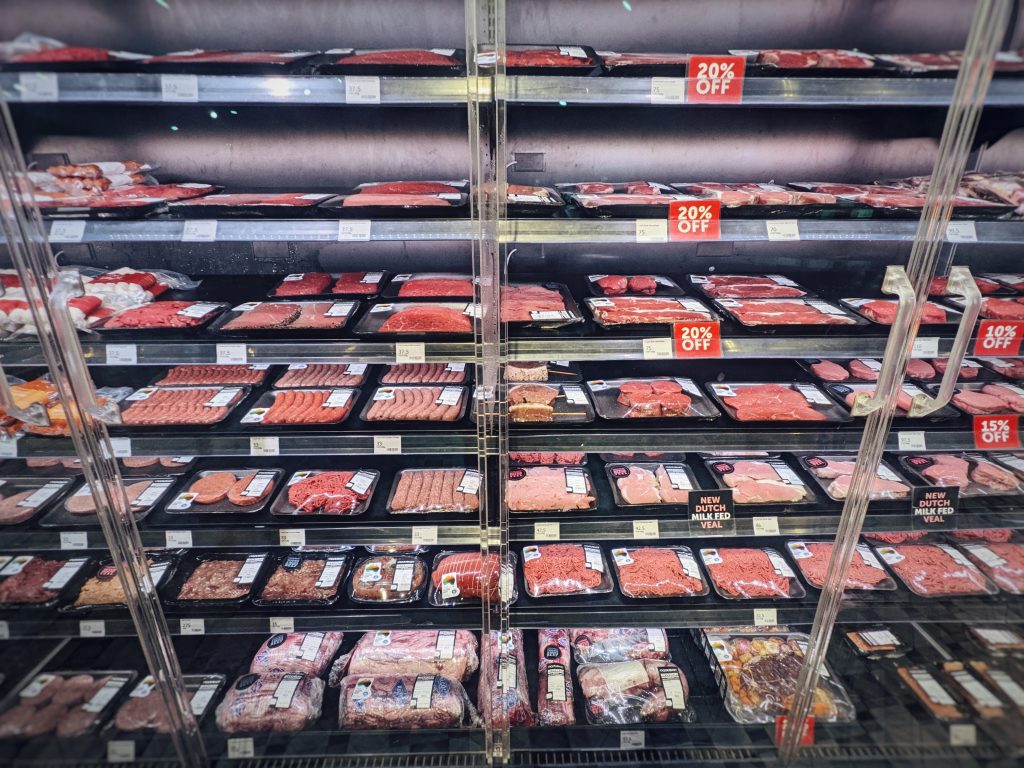
Low-tech, practical solutions like these that we learn from the past and from traditions may be an important part of creating a cleaner and healthier world. The globally shared idea of what constitutes being ‘modern’ and the idea of ‘progress’ is built upon unsustainable modes of production and consumption, and it is by looking back at the past that we may be able to see the way forward.
WE SAID THIS… Middle East Efforts For Plastic Bag Free Day


